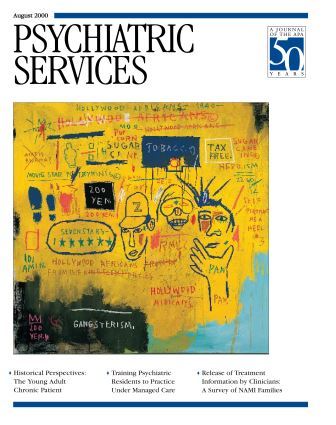Releasing Information to Families of Persons With Severe Mental Illness: A Survey of NAMI Members
Abstract
OBJECTIVE: Guidelines for the treatment of severe mental illness recommend that providers share information with families and involve them in treatment. However, research indicates that consumer-provider-family collaboration is not part of routine clinical practice. This study examined the process of releasing information to families and the types of information they receive. METHODS: Self-administered surveys were completed by 219 family and consumer members of the National Alliance for the Mentally Ill. The surveys gathered information about their experiences with providers' releasing information. Consumers' attitudes toward collaboration and family members' satisfaction with providers were also measured. Regression analyses examined the relationship between consumers' attitudes toward family involvement and whether providers discussed family involvement or the release of information with consumers. Further analyses examined the relationship between family satisfaction and release of information. RESULTS: The majority of family respondents (72 percent) reported that they received some specific information about their relative's mental illness. Most families received information about diagnosis and medications, but few received information about the treatment plan. Few consumers reported that their permission was requested to release information to their families. Consumers' attitudes toward their family and toward family involvement were significantly associated with whether they were encouraged by their provider to involve a family member in their treatment. No significant relationship was found between consumers' attitudes and whether their provider discussed the release of information. Family members' satisfaction was positively related to whether they received information from providers. CONCLUSIONS: The findings suggest that although some information is shared with families, collaboration is not currently part of routine clinical practice.



